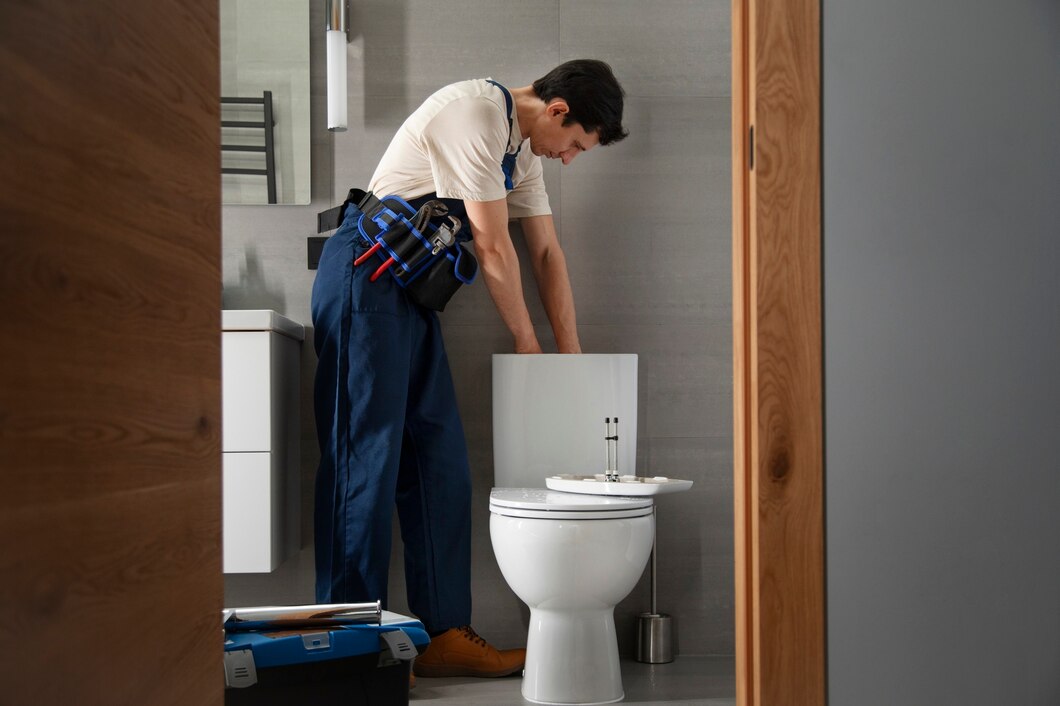Plumbing problems can be stressful and inconvenient, often leading to situations where you need to contact a professional for assistance. Whether you’re dealing with a clogged drain, a leaky pipe, or a broken water heater, knowing how to communicate effectively with a plumber is crucial to ensuring that the problem is resolved quickly and efficiently.
This guide will walk you through how to call a plumber and ask for help, offering tips on what information to provide, how to describe the problem, and what to expect from the process. By following these steps, you can feel confident in getting the help you need to fix your plumbing issues.
When Should You Call a Plumber?
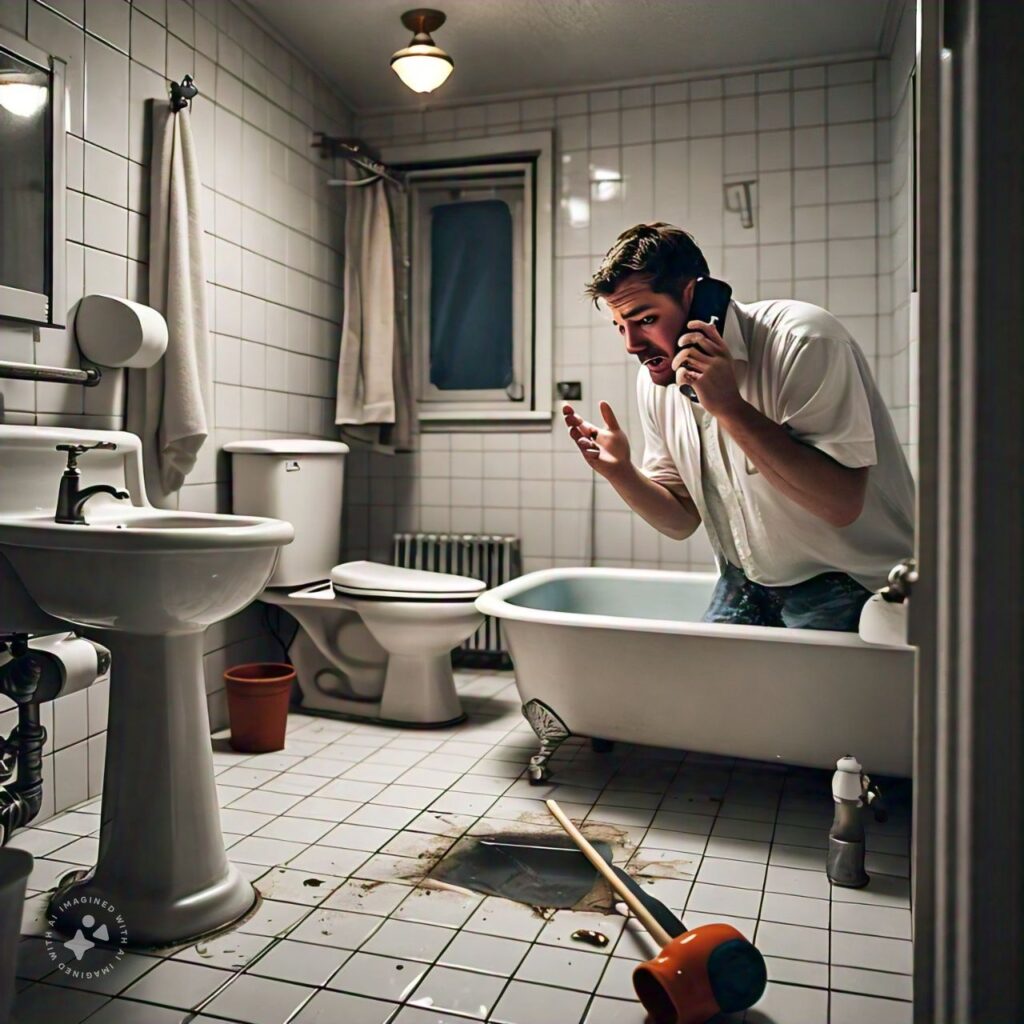
When Should You Call a Plumber?
Common Plumbing Issues That Require a Professional
Not every plumbing problem requires professional help, but some issues are best left to the experts. If you encounter any of the following problems, it’s a good idea to call a plumber:
- Leaking pipes: A leaking pipe can cause significant water damage if not addressed quickly.
- Clogged drains: Severe clogs that cannot be fixed with a plunger or drain cleaner should be handled by a plumber.
- Water heater issues: If your water heater is malfunctioning or not providing hot water, you may need professional help to repair or replace it.
- Burst pipes: This is an emergency situation that requires immediate attention from a plumber to prevent water damage.
- Low water pressure: If the water pressure in your home has suddenly decreased, a plumber can diagnose and fix the underlying issue.
- Sewage backups: This is a serious health hazard that needs to be addressed by a professional plumber.
Do You Need an Emergency Plumber?
If you’re facing a plumbing emergency—such as a burst pipe or sewage backup—make sure to specify that you need emergency services when you call a plumber. Many plumbing companies offer 24/7 emergency services, but you’ll want to confirm this during the initial phone call.
How to Find the Right Plumber
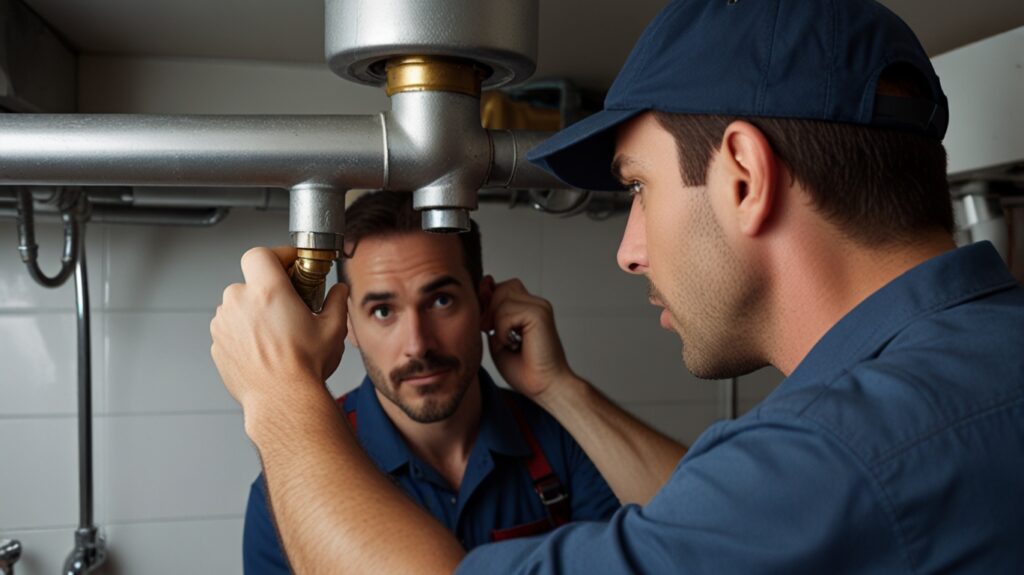
Research Plumbers in Your Area
Before making the call, it’s essential to research reputable plumbers in your area. Look for plumbers who are licensed, insured, and have positive customer reviews. You can find plumbers by:
- Searching online: Look for local plumbing companies or independent plumbers with good reviews on sites like Google, Yelp, or Angie’s List.
- Asking for referrals: Friends, family, or neighbors may have recommendations for trustworthy plumbers they’ve used in the past.
- Checking credentials: Ensure the plumber is licensed and insured in your state, which is often required for them to legally operate.
What to Ask When Calling a Plumber
When you’ve identified a plumber, it’s important to ask the right questions during the initial phone call to ensure they can handle your specific problem. Some key questions to ask include:
- Are you licensed and insured?: Make sure the plumber has the proper certifications and insurance coverage to protect you in case something goes wrong.
- What are your rates?: Ask about the plumber’s hourly rate or whether they charge a flat fee for specific services. Some companies may also charge a service fee for coming out to assess the issue.
- Do you offer a warranty?: Many reputable plumbers will guarantee their work with a warranty. Ask what their policy is on repairs and whether they stand behind their services.
- How quickly can you come?: If you’re dealing with an urgent plumbing issue, find out when the plumber can arrive to help.
- Do you provide free estimates?: Some plumbers will offer a free estimate of the cost to fix the issue, while others may charge a fee for diagnostic services.
How to Describe Your Plumbing Problem
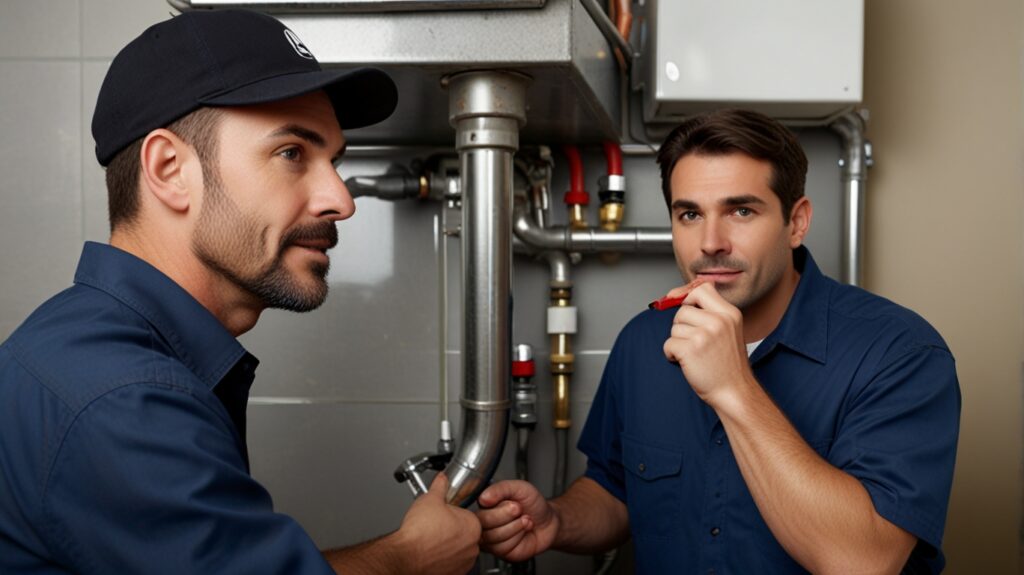
Be Specific About the Issue
When you call a plumber, it’s important to be as specific as possible about the plumbing problem you’re experiencing. Clear communication helps the plumber understand the severity of the issue and whether they need to bring any specialized tools or parts. Here are some tips on how to describe common plumbing problems:
- Leaky pipes: Describe where the leak is located and how long it has been happening. Is it a slow drip, or is water leaking out quickly?
- Clogged drain: Mention which drain is clogged (kitchen sink, bathroom, shower) and what you’ve already tried to fix it (plunging, drain cleaner).
- Water heater: Explain whether you’re getting no hot water at all or if the hot water is inconsistent. Also, mention if you’ve noticed any strange noises or leaks from the water heater.
- Low water pressure: Tell the plumber if the low water pressure is happening throughout the entire house or just in certain fixtures, such as the kitchen sink or shower.
Mention Any DIY Attempts
If you’ve already tried to fix the problem on your own, it’s important to tell the plumber what you’ve done. This information can help the plumber better understand what might be causing the issue and whether your attempts have made things better or worse.
For example, if you’ve tried using a plunger on a clogged drain or reset the water heater but it’s still not working, let the plumber know. This will give them a clearer picture of the situation and help them decide on the best approach.
Take Photos or Videos
If possible, take photos or videos of the plumbing issue before calling the plumber. Many plumbers will appreciate this, as it gives them a better visual understanding of the problem. If the plumber allows it, you can send these images via email or text, making it easier for them to assess the situation and prepare for the job before they arrive.
What to Expect During the Plumber’s Visit
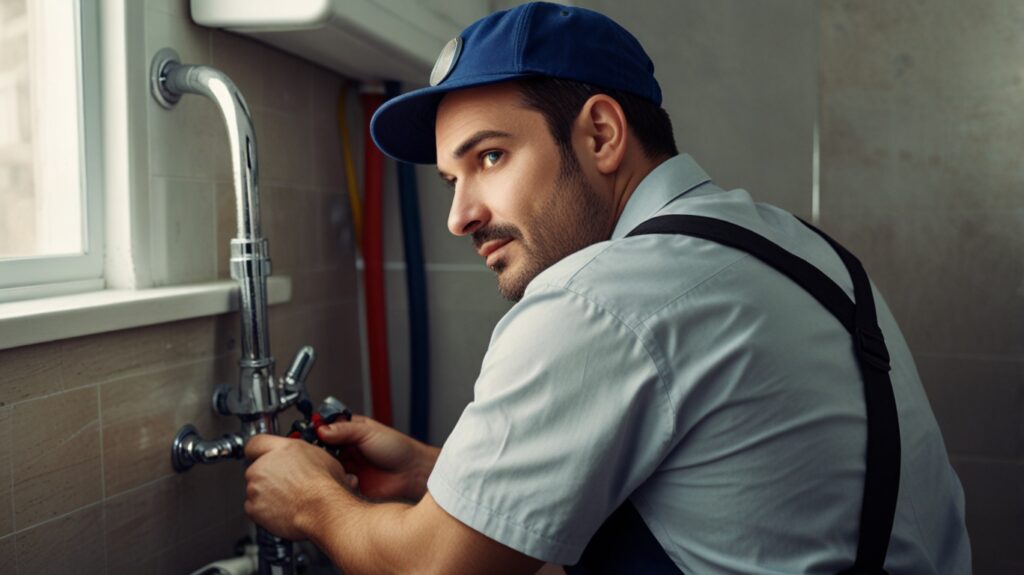
The Initial Assessment
Once the plumber arrives, they will start by assessing the problem. This may involve a visual inspection of the affected area, followed by diagnostic tests to determine the root cause of the issue.
For example, if you’ve called about a clogged drain, the plumber may use a drain snake or camera to identify the source of the blockage. If the issue is related to a leak, the plumber may need to shut off the water supply to investigate further.
Explanation of the Problem and Solution
After diagnosing the issue, the plumber will explain the problem in detail and recommend a solution. They should also provide an estimate of the cost to fix it, including labor and any necessary parts.
At this point, feel free to ask questions if anything is unclear. A good plumber will take the time to explain the repair process and address any concerns you may have.
The Repair Process
Once you’ve agreed to the proposed solution and cost, the plumber will begin the repair. Depending on the complexity of the issue, the repair process could take anywhere from 30 minutes to several hours.
During this time, it’s important to give the plumber space to work but be available in case they have any additional questions or need to update you on the progress.
After the Repair: Testing and Cleanup
After the repair is complete, the plumber will likely test the system to ensure everything is working properly. For instance, if they’ve fixed a clogged drain, they’ll run water through the system to make sure the clog is fully cleared. If they’ve repaired a leak, they’ll test the water pressure and check for any residual drips.
The plumber should also clean up any mess created during the repair, leaving your home as tidy as it was when they arrived. Before they leave, make sure to ask if there’s anything you should keep an eye on or if any follow-up maintenance is required.
Final Tips for Calling a Plumber
Be Prepared with Information
When calling a plumber, have all the necessary information ready, including a description of the problem, any steps you’ve already taken to fix it, and photos or videos if applicable. This will help the plumber assess the situation more efficiently.
Be Clear About Costs
Before any work begins, make sure you understand the cost breakdown. Ask about hourly rates, service fees, and whether the estimate includes parts and labor.
Keep Contact Information Handy
Once you’ve found a plumber you trust, keep their contact information handy for future use. Plumbing issues can arise unexpectedly, and having a reliable plumber’s number on hand can save you time and stress.
Conclusion: Getting the Help You Need
Knowing how to call a plumber and ask for help is essential in addressing plumbing problems quickly and effectively. By following the steps outlined in this guide—researching the right plumber, clearly describing your issue, and understanding the repair process—you’ll be better prepared to tackle any plumbing emergency or routine maintenance with confidence.







